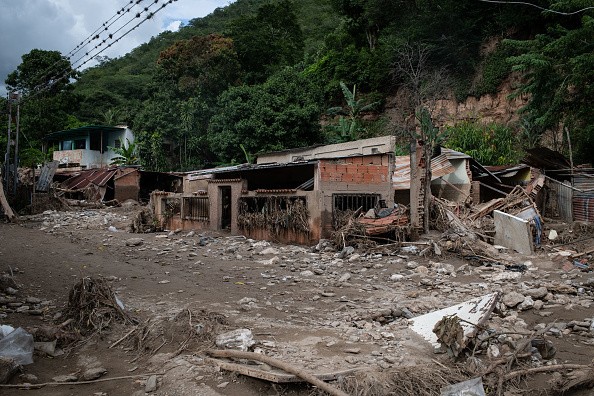The landslides in Venezuela were devastating and might be considered one of the worst disasters that hit the country, causing deaths and massive damage to properties.
The catastrophic landslides claimed the lives of over 43 people, according to the Washington Post reported.
The government started the search operations to recover more victims or people trapped in the landslides.
Impact

The report said a landslide happened in Las Tejerias. AccuWeather noted it is located in the mountains about 40 km from Caracas, serving a place for over 54,000 residents.
The report from AFP also said that completely destroyed houses were almost at 400 and 400 more were partially damaged.
Reuters reported that Venezuela President Nicolas Maduro made the area a disaster zone and announced three days of mourning.
Meanwhile, the AFP News Agency explained that the death toll could reach 100.
AccuWeather explained that the dissipated Hurricane Julia and La Niña caused heavy rainfall that contributed significant role in the worst natural disaster in Venezuela.
According to Reuters, Vice President Delcy Rodriguez said that floodwaters affected the important pumps for the community's drinking water for residents.
The Vice President stressed the urgent response to locate residents trapped in the mud and rocks, saying that the town of Tejerias suffers from a tragedy.
Meanwhile, Tropical Storm Karl is expected to move towards Mexico, which could bring heavy rains and flooding.
Tropical Strom Watch and Warning are now in effect for affected residents.
Landslides
Based on the U.S. Geological Survey's website, landslides refer to the movement of debris, mass rock moving down the slope, or movement of soil and rock with the influence of gravity.
Mudslides can also develop nearby and affect communities.
Meanwhile, the CDC noted that landslides could emerge in areas that have destroyed vegetation, history of landslides, at the bottom of the mountains, canyons, or near the stream or river, or with active constructions affecting the land.
Incessant heavy rains and strong winds could cause landslides.
- For possible evacuation plans, it is important to be aware of the current news updates, especially if you live in landslide-prone areas.
- Stay on high alert if there is a storm or hurricane, as it can cause landslides or mudslides. Monitor the activity outside your communities for potential threats.
- Immediately evacuate if the place is already at risk after an earthquake or heavy rains. Consider evacuating if possible.
- Report to authorities for any possible landslide incidents.
- If landslides occur, coordinate with the local authorities if it is safe to return. Be wary of mudslides.
- Be mindful of damaged electrical wires, appliances, outlets, sharp debris, and landslide risks.
- If your family members are missing, report to authorities for urgent search and rescue operations.
- Refrain from traveling or any outdoor activities near flood-prone and landslide-prone areas.
Related Article : Sea-Level May Rise to 2 Meters By 2100, Feared Critical to Existing Infrastructures in Asia Pacific Regions
For more similar, don't forget to follow Nature World News.
© 2026 NatureWorldNews.com All rights reserved. Do not reproduce without permission.





